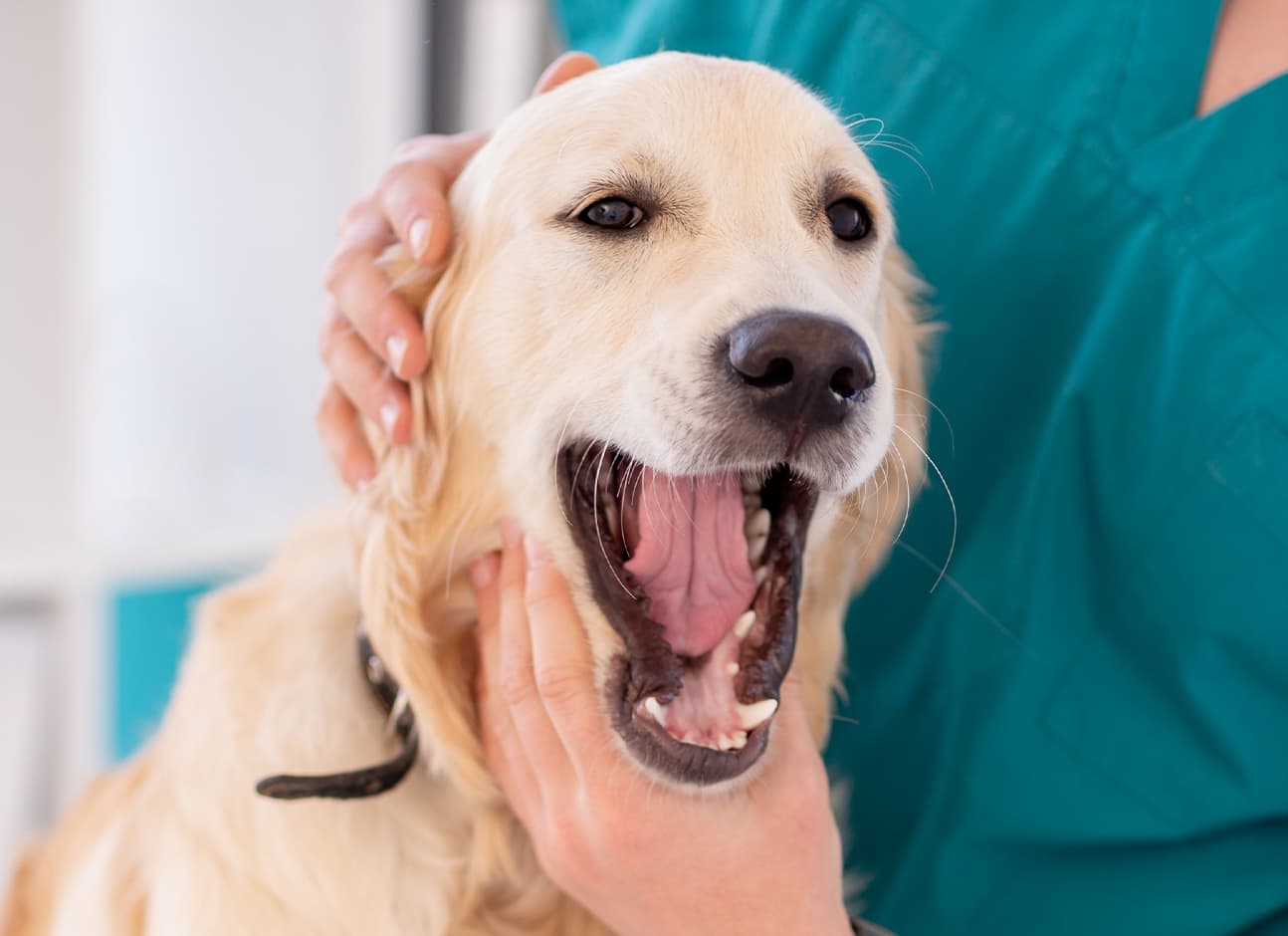
Periodontal disease in dogs
Canine periodontal disease is a common dental condition in dogs that affects the gums and tissues surrounding the tooth through the deposition of dental plaque and tartar on the teeth. Also known as Periodontitis, this condition if not treated on time can lead to tooth decay and other health issues. Certain dog breeds including Pugs, Chihuahuas, Boxers, Dachshund, and Border Collies are more likely to develop periodontal disease than other dogs.
Symptoms of periodontitis include bloody or swollen gums, irritability, weight loss, dental discolouration, loose or lost teeth, halitosis (bad breath), decreased appetite, bloody saliva, excessive drooling, and chewing through one side of the mouth. If you suspect a case of periodontal disease or notice such signs in your dog, you must take them to the veterinarian immediately. This is important because periodontitis is not restricted to the mouth alone as bacteria from the oral cavity can enter the bloodstream and spread to other parts of the body, potentially causing heart disease.
Treatment for periodontal disease depends on the severity of the condition. Gingivitis, which marks the first stage of the disease, is largely treatable and can be cured through a professional dental cleaning procedure coupled with fluoride application to prevent plaque accumulation. The second and third stages involve a deep scaling and scraping process which is performed under general anesthesia. The final stage of periodontal disease requires surgery for the extraction of the affected teeth.
Although gingivitis is curable, periodontal disease becomes more complex and so do the treatment options as it progresses to the other stages. Although advanced periodontitis is irreversible, it can be managed through proper care and frequent dental cleaning. There are also a few steps that you can take to prevent the condition in your dog. Brushing their teeth regularly, checking for bad breath, specialized diets, and adhering to regular veterinary health checks can keep your dog safe from the trouble of periodontal disease.

